Introductions REQUEST SPEAKER INVITE VOLUNTEER TO HELP REGISTER INTEREST REGISTER INTEREST REGISTER INTEREST
My name's Mark Smalley and I want to help organize a NoSQL conference in South East Asia. I've been living in and around Malaysia for the past 15 years and believe that Kuala Lumpur would be an ideal location to host such an event. At the very least, I would like and plan to transform NoSQLasia.org into a place to help consolidate and organize the flow of information, cross-promotion and marketing of the events and communities that are promoting NoSQL throughout South East Asia.
With recent reports suggesting that the NoSQL Market will be a US$14 Billion business in 2013 - 2018 and with almost US$100 Million in recent funding to just 10gen and Neo Technologies alone, it is quite clear that the NoSQL mindset is not just a temporary fad. This is why I also believe that now would be the perfect timing for such an event, so propose that this conference takes place in September 2013
The story that proceeds this introduction merely helps to explain why...
If you would like to take part in this event or group, please show your support by clicking on any of the links above.
If you would like to take part in this event or group, please click on the register interest button above.
If you would like to take part in this event or group, please click on the register interest button above.
I started this piece with the intention of exploring my past year with mongoDB. I began working on it upon reaching San Francisco, where I had been invited for the second time to attend the mongoSV Masters Summit.
Truth be known, this topic has been discussed with interest from several key executives and community leaders within the surrounding NoSQL industries in America, Europe and Asia. However, it's a discussion that keeps occurring but never getting very far due to the complexities and social politics involved. Not knowing how else to get the ball rolling, I decided to jump straight-in, registered the domains, twitter handle and set-up some Facebook groups. Just needed to make it all public and found myself writing this...
Chapter 1 :: San Francisco
Imagine yourself sitting in one of the six million or so coffee-shops in San Francisco. You spot startups of all descriptions. On one side, you spy a MongoDB leaf and Hadoop. In another corner you can see Cassandra and Neo4j. They're all here represented in some way. Not to mention those providing services for them - such as MongoLab, AWS and Azure. Stickers are sporadicly spread upon the backs of numerous computers. It quickly becomes a challenge to find someone who is not tapping away on their MacBooks. Developing, debugging or generally attempting to change the world in some small way. It's not only hard to find a laptop that isn't a Macbook, it's even harder to find one being used for Facebook or other recreational purposes. That appears to be something strictly reserved for the soccer mums and their iPhones. In San Francisco, it truly feels as though developers are in the majority, especially when you visit a coffee-shop.
In South East Asia it's a whole other game. It's a game without rules. With lots of teams, but no league. Yet despite this, it feels to me as though the hacker-community of South East Asia has stronger bonds than most. It's an intricate concoction of vastly differing cultures at a critical time in the region's development.
It took me two days to reach San Francisco. I was invited back to attend the MongoDB Masters-Summit that takes place during mongoSV. During my previous trip last year, a project of mine (MongoPress) won an award, which allowed me to visit SXSW 2012. This year, I was given the opportunity to present at the San Fran MongoDB User-Group (1,880 + Members) that was taking place a week before mongoSV. Having spent the past year organising the Kuala Lumpur MongoDB User-Group, I quite literally jumped at the chance to present at my first mongoDB User-Group that was not organised by myself.
This meet-up was held in the Kixeye kitchen - a fine place to say the least:
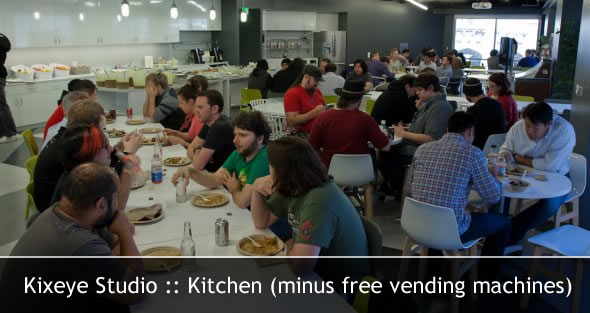
So fine in fact that we had to sign NDAs before being allowed into the building. Coming in was an adventure of its own, with lobbies and hallways reminiscent of science-fiction movies. Alarm bells ring and computerised female voices warn of air-lock explosions, the need for quarantine and other such dramatic notifications:
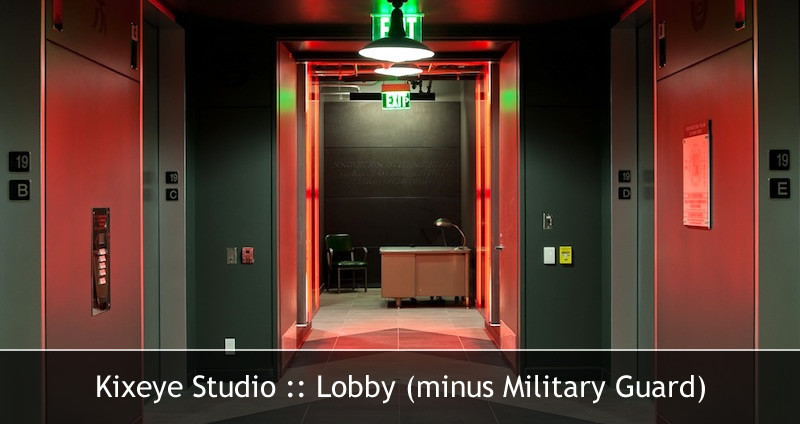
Nervous much. Me? Just a tad. Starting with, "Do we have any web-designers in the room?" Was how I decided to break the tension.
I'm met with a mixture of mostly silence and a tinge of confusion. I think they think I'm joking, I am after all on stage at a database meet-up, so I quickly proceed to explain my seriousness… "Yes, that's right, I'm a web-designer who fell in love with a database." Fortunately, there are a few people in the audience who have yet to use MongoDB and my presentation regarding JSON and The Argonauts seems to be hitting the right chords, so I focus-in on them.
Yes, that's right, I'm a web-designer who fell in love with a database!
And this is why I do what I do. I want as many people to be free from the constraints of the SQL language and its relational mindset as possible. NoSQL for the win is what I say. At every opportunity I get, and not just the "Not Just SQL" kind, but the "NO SQL OF ANY KIND". That's the kind I champion. Having spent the first ten years plus of my computer life trying to build web-based applications with relational databases, I never realised how truly insane it all was until I met my muse.
I always realised something was not quite right, a little like Neo did in the first Matrix movie, but it wasn't until that first weekend with MongoDB that I truly came to understand just how deep the rabbit hole went…
Getting back to my presentation, it's hard to follow in the footsteps of Stripe, who presented on how they use MongoDB to handle terabytes of data for event processing through Monster. Nonetheless, someone has to do it. Looking back at the previous presentations that were given at other mongoDB meet-ups in the area, I discover a similar pattern. Foursquare, Twitter, GitHub, they've all presented and the topics are always advance and focus-in on their own personal use-cases. After speaking to a few attendees afterwards, I'm able to confirm that this is very common and accounts for why the crowd is less engaged than they are at the Kuala Lumpur MongoDB User-Group, where we often try to promote concepts and patterns too. We also like to explore complimentary technologies as often as possible. The majority of our meet-ups here in Malaysia are more predominantly filled with regulars, whereas in the states, specifically in and around Silicon Valley and NYC. Meet-ups are often filled with first-timers.
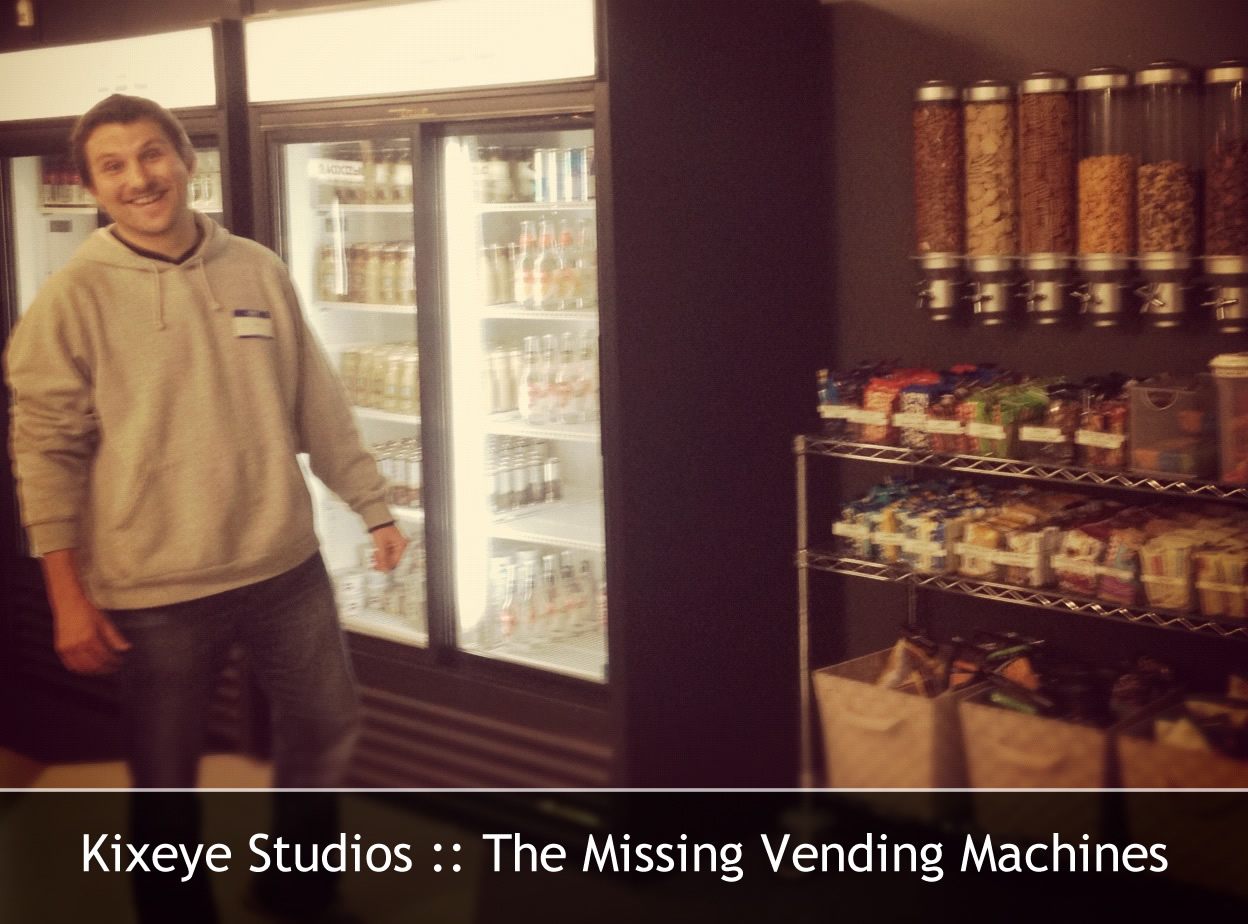
I then spent a few days wandering the beautiful streets of San Francisco:
Before returning home to Malaysia.
South East Asia
As we've already established...
In South East Asia it's a whole other game. It's a game without rules.
Is this a good or bad thing? Perhaps neither. Perhaps it's just different. People would argue either way. People like to argue. A popular argument in Kuala Lumpur is how it boasts a more successful entrepreneurial spirit than Singapore, and yet it's Singapore that has the money. Despite this, it appears to be Kuala Lumpur that has the most regular and occupied meet-ups, not Singapore - and yet it's Singapore that gets effective government support. Singapore technology (integration) is decades ahead of Malaysia, and yet Malaysia appears to have a more engaged hacker community. In many ways, it often feels as though Singapore is doing what it can to emulate the Valleys. Whereas Malaysia is waiting for others to emulate them.
We have a Super Corridor dedicated to technology, tax-free for startups - how could it have all gone so wrong? We've got spirited companies such as Mindvalley, iTrain, Tandemic and Nook doing what they can to support the hacker-culture, with causes and start-ups such as HackWeekend, DoSomethingGood, TEDxKL and CultureRun educating and inspiring those around us.
We even have hacker-fueled success stories such as TaxiMonger, which was born in a HackWeekend and went on to graduate from TechStars Dubai and is now available as a TV App too! We even had Groupsmore acquired by Groupon in just 5 months - launching Khailee to super-stardom and eventually into Dave McClure's sights.
But nonetheless, something is missing...
Perhaps it's as simple as a lack of commercial support from the OpenSource platforms we (as hackers) are promoting? It would be easy to pin-point blame at the government or private sectors for not investing in innovation, but in many ways - it's a chicken and egg situation.
Perhaps that would be grossly simplifying things too, but we have to start somewhere and haven't got all day!
One thing that is clear about both Malaysia and Singapore is that despite their points of view - both are willing to take risks. Perhaps that's why we were recently able to attract the Founders Institute to Kuala Lumpur. The Philippines and Indonesia appear to be more reserved, and generally risk adverse. They are however fortunate enough to have the full support of Microsoft, who are responsible for nearly all of the sponsorships and meeting spaces. Since Kuala Lumpur meeting spaces are controlled by private entities, things are very different...
Yet, it feels to me as though the hacker-community of South East Asia has stronger bonds than most...
Proven recently by Wahyu Kristianto. I am flabbergasted by the growth of the Indonesian MongoDB User-Group. In just two months Wahyu grew their Facebook group to 315+ Members. Their first meetup is taking place on the 19th of January and they sold out 100+ tickets in the first two days. This is an event I am certain many of us will regret missing.
A general problem we have in South East Asia is that at an Enterprise level, our countries are crippled by the coils of MySQL (thanks to WordPress) and Oracle (thanks to MySQL). Relational mindsets have been drilled very deeply. The fear of change, stepping beyond comfort zones and into the unknown is impossible without 24/7 priority hotline support.
There is an entire commercial industry taking place around the OpenSource NoSQL technologies in America and Europe. South East Asia does not have that. South East Asia has only the easy options available. We have NewSQL, AWS and Azure at best, and although it is a step in the right direction, perhaps it's time we took a leap?
The question then becomes - can we risk leaping if we know that there is no one to catch us should we fall...?
MongoDB
For me, it was love at first sight - I built a MongoDB powered CMS the first weekend, a mongoDB powered email management platform the second weekend and a mongoDB powered HTML5 social-gaming platform the weekend after. By week four, I was a registered MongoDB Master and lead organiser of the Kuala Lumpur MongoDB User-Group. Addicted? Yes. An easy thing to do, even for a web-designer.
Perhaps this was why I was invited onto national TV twice to talk about mongoDB and our growing group of NoSQL enthusiasts. Perhaps it was why I was also the first non-Malaysian to be invited to the Government IT think-tank to better introduce this new technology to those currently stuck with Oracle. My enthusiasm for these new technologies is infectious, and it's time for me to channel that energy.
My favourite slides from my favourite presentations often look a little like this:
1974 - Relational Database Invented
1989 - World Wide Web Consorted
2002 - JSON.org
2009 - MongoDB.org
And that's why I love NoSQL - in the case of document databases and some wider key value stores, data is just stored and served as one huge array. JSON or BSON - it's ultimately structured in much the same way as it is within your language of choice, so things seem natural. If you are looking for all the documents contained within the accounts collection who's first name is Mark, the JavaScript syntax would be as simple as db.accounts.find({"first_name":"Mark"}).
Suddenly, as a front-end web-designer who knows his way around jQuery, I find myself able to understand, construct and master database queries. Yes, database queries can be written as JavaScript. BSON is a modified version of JSON that was created by 10gen to store data in mongoDB. BSON even contains its own JavaScript data type. It's magic like that and the freedom of schemaless constructs that made me see the errors of my way and why MongoDB has become as popular as it has so quickly.
For fans of NodeJS, it's a match made in heaven - JSON through and through directly from JS.
NoSQL = NO SQL or Not Just SQL ...?
Pseudo-political correctness would say that the NO stands for Not Just. Since this is a personal piece, in what sane world could the NO in anything mean anything other than NO...? Additionally, I'm not here to just talk about mongoDB - that would be selfish. I did however need to give myself an introduction so that my upcoming pleas would have more context.
When I started writing this piece (in the coffee shop in San Fran), it was originally planned as a potential article for Entrepreneurs.my. Daniel had shown a genuine interest in the planned subject matter. I had made assessments and documented progress that I had planned to present upon reaching mongoSV. I would conclude the story upon my return after having taken the time to look back over the year from mongoSV 2011 to mongoSV 2012. However, at one point or another, the story changed.
Perhaps it was during the MongoSV 2012 keynote...?
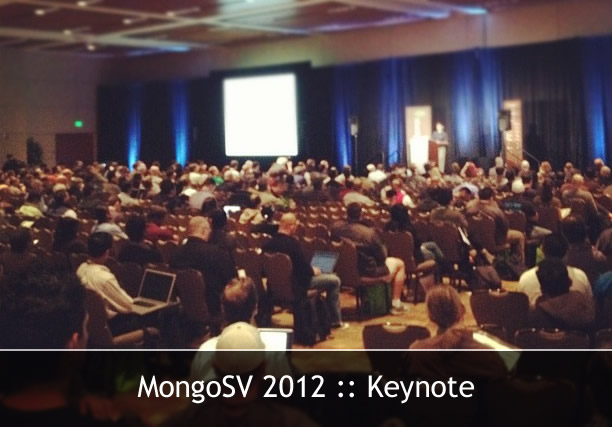
I'm by no means against combining data technologies, I'm just against combining them with SQL :-)
Steve Francia did an awesome presentation on MongoDB, Hadoop and Humongous data at MongoSV:
Polygot NoSQL with SpringData on Neo4j and MongoDB is another fine example of complimentary technologies.
Unfortunately, there are few NoSQL technologies that have the same community spirit that MongoDB has tapped into. The closest most often found groups (even here in South East Asia) are Big Data groups. Big Data Malaysia (165+ Members) and Big Data Singapore (480+ Members). These groups best represent Hadoop and Cassandra in South East Asia. However, the feel and focus of these meetups and groups appears much more focused towards the marketing side of things rather than the underlying technologies.
Asia as a wider representation includes Australia and China. In Australia, they have already addressed the matter of Big Data Vs NoSQL with BNOSQL in Brisbane (150+ Members) and SMAQDown Sydney (175+ Members). China has MongoDB Beijing.
The next generation of NoSQL solutions could include the much re-tweeted #NoSQL trend of late being ACID + NoSQL = FoundationDB and the developer friendly introduction of what it calls layers. Much like OrientDB, which also allows for the storage of documents and creation of graphs, modular database platforms have the capability to combine the best of everyone.
Neo4j
In truth, I think my love of NoSQL may have started about eleven months ago, when I was first introduced to Neo4j. The company, its technology and the concept of graph databases instantly sparked a special kind of interest in me. Much the same way mongoDB did that first weekend. With recent reports claiming that by 2020, there will be 5,200 GB of data for every person on the planet; what I find most interesting is that I imagine each of those people with their own nodes. Connected across distributed networks through one huge decentralised graph spanning the entire planet. I sense extremely BIG things from Neo4j, especially with Neo Technology raising an additional US$ 11 Million in funding at the end of 2012. Graphs are here to stay. BIG things in the next three years.
Graph Visualisations via Sigma.js (representing the possibilities of Neo4j)
This probably accounts for why Microsoft Azure currently have two running under it's belt. In fact, I was oddly surprised by just how many in-house NoSQL solutions Azure provides on its Windows cloud-based platform. Impressive move, but where are the communities to back them up? More importantly, where are the evangelists promoting these breathtaking technologies? In Europe, the States and even Philippines and Indonesia, Microsoft Azure is well represented and gracefully promoted. In Malaysia and Singapore, this is very different.
Nonetheless, what I find interesting to see is the number of Neo4j meet-ups in Europe that are starting to spread-out, like they did for MongoDB in the states. This makes sense, as Neo4j is after-all European. I wait giddy and eager for the first Neo4j user-group in South East Asia and would be especially proud if it took place in KL. Not only so I could more easily attend, but since also knowing that we have a Neo4j core-developer located here - it seems a natural fit.
Is there a demand for regular meet-ups centred on this emerging graph technology written in Java?
Perhaps not now, but just wait and see!
Is there a demand for a regular meet-up discussing NoSQL alternatives and new paradigms in thinking, where Neo4j could quite easily fill at least one slot a week should there be no other competing graphDBs in the area ready to be represented?
Do I even need to answer that?
My Plea, Hope, Commitment, Mission and More!
And there it is… The idea. Planted in mind. An Inception waiting to transpire.
We have communities. We have countless communities. I am currently active in 28 different tech-driven Facebook groups, because that's the way we roll out here in South East Asia. Yet there is nothing (until now) that is dedicated to NoSQL technologies.
I think it's time for everyone with a vested interest in NoSQL to come together and help the region as one.
I feel that for any one of these new emerging technologies and supporting services to make an impact in the enterprise-sector, they need to come together and first make the necessary visual impact that the decision-makers here have come to expect. Beyond the immediate fanfare of fireworks, I do of course have something more noble planned, but let's not forget that even noble causes cost money too!
Not only would I hope that NoSQLasia.org be home to the first conference in South East Asia to truly make an impact in the war against SQL, Oracle and relational mindsets. More importantly, and in time, I would hope to develop an open platform to promote NoSQL groups and events throughout the region. With relevant sponsorship and support, a bolder dream would be for it to become a travelling workshop continually on tour throughout South East Asia, working together to promote each other's technology by knowing the right tool for the right job. Working together in a fight against the man. Them, they - Big Brother... They're all watching-on. Waiting for our next moves.
"How would such a team ever be assembled?" Is the question looping in my head.
"Let's not forget the Avengers managed to do it," is the only reassurance I hear.
Openness would be a start. Working together would merely become the end result.
Other Technology Communities in South East Asia
Easy for me to say, I'm just a web-designer with very little to loose and lots to gain. Beyond that, I'm also a father, founder and CEO. Not to mention moonlighting as the CTO at Perfectsen. It's all glitz and glamour. Hardly, but it does revolve around one thing right across the board. Making the world a better place. The best way I can do that is through the evangelism of OpenSource technologies and communities. In the spirit of this, I've started several groups on Facebook.
We have a closed group for NoSQL Asia that is currently reserved for NoSQL core-developers and NoSQL community leaders throughout Asia. If you are involved with these technologies and or complementing services and would like to help support our hopes to host a NoSQL conference in KL - please get in touch with me via Twitter or Facebook and we can add you to the list. Once the conference starts to either build or loose real traction, I will open the group up for public consumption. For now, it is reserved for those who want to work together to see this thing launched as one and will only start working towards turning this site into an open platform once either having moved-on or confirmed the date of the conference.
Other than the Kuala Lumpur MongoDB User-Group, which is currently sponsored by 10gen and meets regularly every month, I've also more recently started OpenSource KL and NoSQL KL. Both of these new groups are seeking sponsorship, which would allow them to evolve into corresponding meet-ups and perhaps even more coordinated year-round regional events, competitions and camaraderie.
If you are interested in helping with either of these groups, please let me know.
If you're based in South East Asia and hosting NoSQL meet-ups, events or conferences, and (or) presenting at other events with topics on NoSQL - please start using the #nosqlasia hash-tag on Twitter - or get in touch with me personally so I can help to promote it. If you happen to work for one of the commercial services mentioned above and would like to talk about sponsorship opportunities for the conference or meet-ups, please get in touch via Facebook or Twitter.
Other web-technology and start-up Facebook groups in South East Asia that deserve a shout-out include:
HackerSpace SG (1,325+ Members)
Singapore Start-Up Club (1,125+ Members)
Microsoft User-Group Indonesia (2,705+ Members)
Thanks for reading - I'm Mark Smalley
I'm a web designer by trade who stumbled into PHP development through WordPress. I co-founded a web-development agency several years back with clients such as Red FM, Samsung and 100 Plus. We built private social networks and white-labelled web-applications with a team of ten. It wasn't until I left that behind me and rejoined the startup scene with Laulima that I truly found myself properly exploring web-technologies again. We were a company poised to take-on SimpleGeo, but it all fell apart... Not before finding MongoDB, developing a beta version of MongoPress and launching the Kuala Lumpur MongoDB User-Group.
Between the Google-Ad fall-out with Laulima and my next full time position, I formed my own company - R1 DOT MY - where I was finally able to call the shots. For a brief moment in time I even had a business partner and we were determined to find funding for a wide range of mongo-based products I have lying around in prototype states waiting to take main-stream...
However, without funding of my own or taking any official meetings to drum-up VC interest; let's just say that things did not quite go to plan. With growing responsibilities at home with my first child, I was forced to take-on glorified freelancing though consultancy. In need of a regular income, I recently accepted the role of CTO at Perfectsen, a company developing software for banks. It is currently using mongoDB in ways yet seen throughout South East Asia. Will they be using mongoDB as exclusively as I have done for the past year? Probably not, but they know that it is currently the right tool for the right job and believe as strongly about the NO in NoSQL as I do. They also appear to have a genuine interest in supporting the OpenSource community, and are doing what they can to promote these cutting-edge technologies to financial institutions and other publicly listed companies throughout the region.
Follow me on Twitter to get in touch, or join the NoSQL KL group on Facebook.

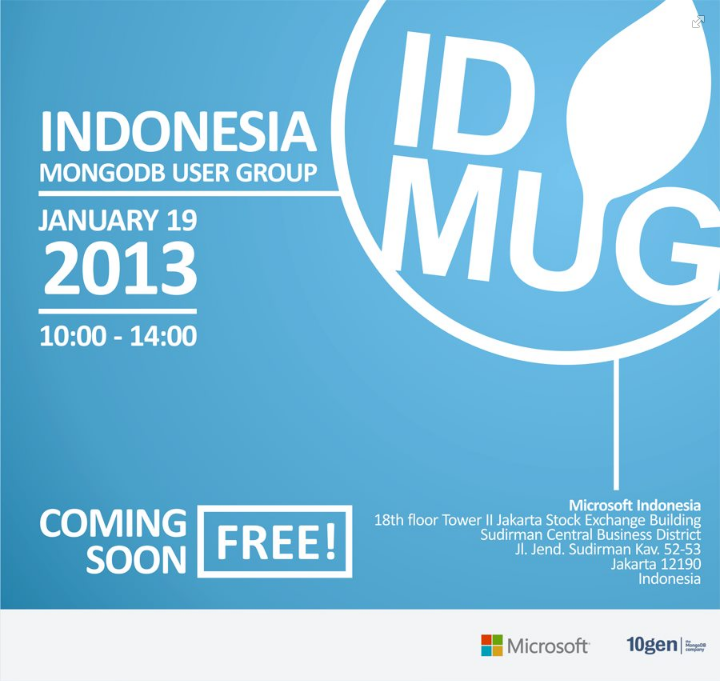
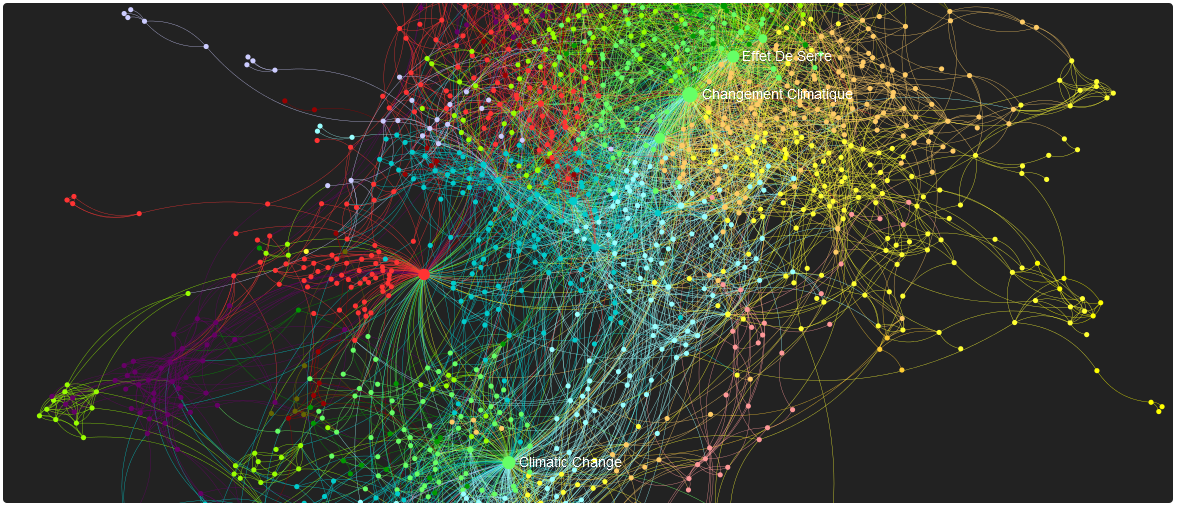
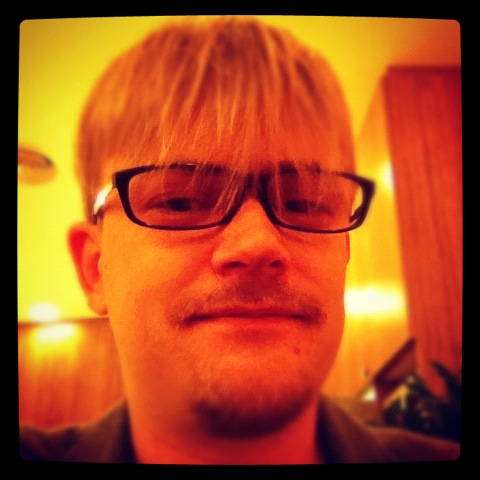
Comments powered by Facebook (keeping it real)